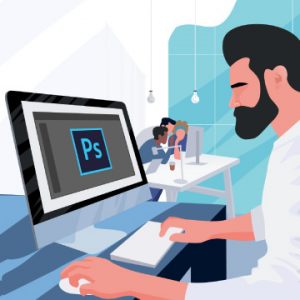You’re not doing anything wrong. TIFF files aren’t compressed the same as JPEG (one reason that format is better for editing) so they aren’t as small. You can add compression in the TIFF Options dialog that comes up when you do a Save As, but I’m guessing it won’t be as completely small as JPEG is itself.
Jeff, in addition to Elena’s explanation about the file size, I’d like to add that the increase in size will make that a much better format for editing. It’s also non-lossy, unlike JPEGs.
Thanks for your replies. I was saving to TIFF for the reason that you both mentioned. It just really surprised me that converting to another format increased the file size this much. It’s not gaining any quality in the conversion, just avoiding loss.
Another question: I am going to send my pictures to Wal-mart.com to get them printed. I wanted to send them as TIFF’s so that no quality loss could occur at Wal-mart. Is this necessary, or is it OK to just send them as JPEG’s? At 9MB per picture, there’s no way I could send 72 pictures at one time, even with my cable modem.
You won’t lose any quality on JPEGs if you’re not resaving the images (and at that, it usually takes numerous edit/resaves to start to see degradation in quality). If you’re just going to print them, you can safely use JPEGs. TIFFs are just ideal for the editing phase of things and lots of people like to archive in TIFF as well.
Thanks again Elena. I have a couple more questions:
I transfer my pictures from my camera to my PC; they are JPEG’s. Before editing I gather that I should convert to TIFF before editing. After editing I save as JPEG to make the file size manageable before sending to Wal-mart.com for printing .
When I save the edited TIFF to JPEG, is it possible for it to have the same quality and file size as the original unedited JPEG? I assume that I will lose some quality when saving the edited TIFF as JPEG.
For example, I start with a 500KB JPEG, save as TIFF and get a 9MB TIFF, edit, save to JPEG. Will the edited JPEG be around 500KB with the same quality as the original 500KB file.
What compression setting should I use to get closest to the original JPEG quality and file size?
Thank you for your patience with this newbie.
What about saving as gif? Then after editing go back to jpg. Is it still better to save as tif? Marty
Marty, you really want to stay away from gif for normal photos – gif has a severely limited color palette.
What compression setting should I use to get closest to the original JPEG quality and file size?
Depends on what compression level was used in the camera to create the original JPEG. Most digital cameras allow you to pick one of several quality levels…the higher the quality (lower compression) the larger the file size, and the fewer photos you can save on the memory card in your camera. It’s always a tradeoff, but in general, it pays to use the highest quality level if you can. PSE gives you the option to adjust the compression level when you convert the TIFF to JPEG. I would suggest that you try saving it at around the 6 or 7 (medium) level and see if the file size is reasonable. If not, just do another "save as" and adjust the level up or down as appropriate. If you save each adjustment under a different filename, you can go back and compare the images afterwards and decide for yourself which compression level gives you acceptable results.
Bert

